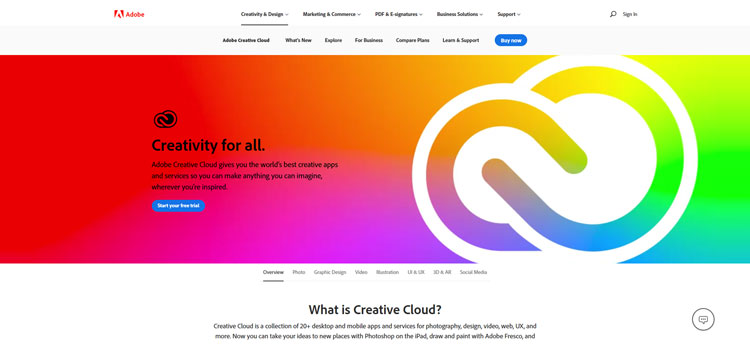11 Best Cloud Storage for Photos in 2024

Nobody wants to take the risk while the subject is to keep your valuable images safe. Since the very beginning, people have taken a variety of precautions for this. Normally, the methods are likely backing up the files through the camera, memory cards, or PC hard drive. Apart from these, people also spend a lot of time burning CDs or DVDs to get rid of this. But in modern times, the system is now much easier. Technology has introduced the cloud storage system which is pretty smart and easy to operate as well.
Today in this article, we will let you know about the most popular and best cloud storage for photos. Before that let’s clarify some basic terms related to the subject in the discussion below!
You may also read– Best 360 Cameras.
What is Cloud Storage?
Cloud storage is a digital service that allows users to save data on servers managed by third-party providers. Instead of keeping information only on local devices like computers or external hard drives, this system lets users upload their data to remote servers.
After users upload their data, they can retrieve it from any location using an internet connection. This is facilitated by data centers run by cloud service providers. These data centers ensure data safety by storing multiple copies across various servers.
Best Cloud Storage for Photos [Updatd for 2024]
If you are looking for the best ever Clode Storage solutions for photos, you are on the right track. Here, you get the 11 best Cloud Storage for photos with their respective details.
-
Google Photos
-
Apple iCloud
-
Google Drive
-
IDrive
-
Flickr
-
pCloud
-
Microsoft OneDrive
-
500px
-
Dropbox
-
Adobe Creative Cloud
-
Livedrive
1. Google Photos

Google Photos is a dedicated cloud storage facility that comes with the package of Google Drive and shares the same storage limitations. There are options to get extended storage with the yearly subscription option. This storage service uses machine learning and AI technology to gather relevant labels and metadata for future reference.
Pros
• It is free to use up to 15Gb.
• There are no limits to saving photos.
• Interagtes automatic backup function.
Cons
• First-time installation and setting can be intimidating.
2. Apple iCloud

Apple provides 5Gb of free cloud storage for free on its Apple iCloud service. Users can use it to save photos and Important documents. It can be synced with all the Apple devices running on the same Apple ID. Also, it’s perfect for multiple device users and also has the option to move to a premium package. No doubt, this is the best cloud storage service for the Apple ecosystem.
Pros
• Offers the industry’s best security facilities.
• It includes smooth synchronization over all connected devices.
• Provides a user-friendly interface.
Cons
• Does not provide proper support for non-Apple users.
3. Google Drive

Google Drive comes first on the list for any Android devices for cloud storage service. It gives 15Gb of free space for all space. It is a package of multiple services within its cloud ecosystem. For photos, it shares its storage with Google Photos. Users can get extended storage by upgrading to subscription packages. These packages come on a monthly and yearly basis. And they are worth it for corporates and users with huge storage demand.
Pros
• It includes a tonne of extra features along with cloud storage support.
• Includes a variety of payment plans for subscription packages.
• Offers a huge range of storage capacity options.
Cons
• Not much user-friendly for the iOS platform.
4. IDrive

When you ask someone about the best cloud storage, IDrive must be one of their very first answers. As a popular Cloud Storage, this tool also stores your image perfectly. If you use the free version, you will have 5 GB to store your photos and documents. This powerful storage tool has a supportive synchronizing option to save all your photos and files on all your devices. It is safe and fast too.
Pros
• The “Auto Camera” option uploads photos automatically.
• Let you retain all the images’ quality.
• Simple interface and easy to use.
Cons
• You have to pay a lot to exceed the storage for this tool.
5. Flickr

You can also check out Flickr if you wish to try a hassle-free Cloud Storage solution. This tool comes with a very straightforward interface and fast synchronization. It is safe and all your photos will be uploaded automatically. Initially, this photo storing platform makes organizing and tagging your photo easy and quick too.
Pros
• The ‘photostream’ display of this tool is very elegant.
• Let you host up to 1,000 photos for free.
• Comparatively cheaper and cross-platform supported.
Cons
• You cannot upload raw image format here.
6. pCloud

To enjoy a lifetime storage subscription, you can use pCloud. Besides all your files and documents, you can store your images in this storage simultaneously. And this tool will never damage the quality of the photos. Besides, just a one-time payment will ensure a lifetime subscription for this tool.
Pros
• Using Nifty, you can store video files and images.
• It can store files and images of any type.
• Each month, you’ll get 2TB of download link traffic.
Cons
• As it offers a one-time payment, it seems to be more expensive.
7. Microsoft OneDrive

Microsoft OneDrive is another popular Cloud Storage Solution that you shouldn’t miss either, especially for your Windows PC. It saves the photos and media files of mobile devices and personal computers without any hassles. Besides photos with original resolution, it is capable of storing files of any format.
Pros
• Very affordable monthly pricing.
• It has better integration with Windows 10.
• You can use it on any iOS and macOS devices.
Cons
• There is no competition for iCloud.
8. 500px

You can try another Cloud Storage platform that comes with EXIF data maintenance and licensing options. 500px is the one I am talking about. You cannot just store your photos but also showcase your masterpieces using this tool. It is a handy platform with a very user-friendly interface. Also, over 13 million photographers are using this tool, and that will assure you of its compatibility.
Pros
• You can upload photos with the original resolution.
• Licensing all the photos is easy here.
• You can get feedback from other photographers showcasing your photos.
Cons
• The free version offers very little storage capacity.
9. Dropbox

Don’t say you are not familiar with Dropbox as one of the best cloud storage for photos. In addition, its photo storing system is truly praiseworthy. You can sign up for free but you have to pay to exceed your storage anyway. The interface is simple and hassle-free for this tool. Again, the auto-upload option is also available in this cloud storage tool.
Pros
• Free 2GB of online storage.
• Supportive synchronization system and cross-platform support.
• Supports files and images of any format.
Cons
• There is no built-in editing tool available in this storage solution.
10. Adobe Creative Cloud

When it is about photos, whether editing or storing, Adobe is always a good idea. Adobe Creative Cloud also provides a better photo storage system for you. Its cloud-based storage solutions are highly suggested for photographers and editors. You can also store files and images of any type including the RAW file formats.
Pros
• Works very fast both on Windows, Mac, iOS, and Android.
• Comes with a simple interface.
• Direct editing options are available.
Cons
• Comparatively more expensive than many other cloud storage tools.
11. Livedrive

Despite being a very popular Cloud storage platform, Livedrive works very well to store photos. It ensures a great security option and you can just rely on it to protect your photos. It will automatically upload all your photos and the mirror option will let you make any additional changes.
Pros
• Provides unlimited backup and strong security.
• Comparatively cheaper and cross-platform supported.
• DropBox like file scanning service is also available.
Cons
• You cannot try the free trial without providing your credit card details.
How To Choose A Cloud Storage?
There are a considerable number of cloud storage solutions on the internet. But the question is how to choose the appropriate one for you, right? Well, here’s a detailed guide to help you make an informed decision.
Understanding Your Needs
Before diving into the myriad of cloud storage options, it’s crucial to assess your needs. Are you an individual looking to back up personal photos and documents? Or are you a business in need of extensive storage with collaboration capabilities? Determine the volume of data, the purpose, and the frequency of access. These can guide you to a solution tailored to your requirements.
Security Concerns
One of the foremost considerations when choosing a cloud storage provider is security. Check the encryption methods the provider employs, both for data in transit and at rest. Additionally, consider features like two-factor authentication, secure access controls, and the provider’s history regarding data breaches.
Usability and Integration
A user-friendly interface can significantly streamline your interactions with the cloud. Opt for solutions that are intuitive and easy to navigate. Moreover, if you’re reliant on specific apps or software, ensure that the cloud storage seamlessly integrates with them. It enhances your workflow rather than complicating it.
Pricing and Storage Limits
Cloud storage solutions come with varying pricing models. Some offer a freemium model with basic storage capacity for free, while others operate on monthly or yearly subscription fees. When assessing costs, look beyond just the price tag. Evaluate the storage limits, scalability options, and any additional charges for data retrieval or excessive data transfer.
Reliability and Uptime
The advantage of cloud storage is the ability to access your data anytime, anywhere. This necessitates a reliable service with high uptime. Check the provider’s service level agreement (SLA). This will tell you their promised uptime. It will also explain if they offer any compensation for times when their service is down.
Data Sovereignty and Compliance
For businesses, especially those in regulated industries, understanding where the data is physically stored is crucial. Different regions have varying data protection regulations, and non-compliance can result in hefty penalties. Choose providers that are transparent about their data centers’ locations. Also, ensure they align with any regulatory requirements you’re bound by.
Suggested Article– Photography License.
Final Thoughts
Photos capture fleeting moments, weaving together the tapestry of our memories. The best cloud storage for photos isn’t just about capacity; it’s about the seamless blend of security, user-friendliness, affordability, and robust features tailored to photo storage. So, as you venture into the vast cloud realm, prioritize platforms that resonate with your needs. And let your photos find a safe haven amidst the bytes and pixels.




